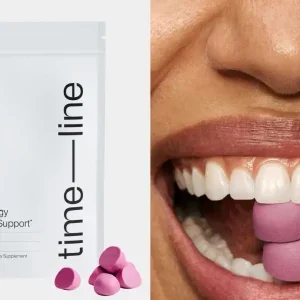
Nutritionists at the National University of Singapore (NUS) found that 5-Hydroxytryptophan (5-HTP) supplementation may improve sleep quality in Singaporean older adults.
The naturally occurring supplement is found to be beneficial, specifically for people with poor sleep patterns, helping them manage their gut microbiome composition.
The research team was led by NUS Department of Food Science and Technology (NUS FST) Assistant Professor Kim Jung Eun, under the NUS Faculty of Science.
The study was conducted in collaboration with NUS Yong Loo Lin School of Medicine, Department of Psychological Medicine adjunct associate professor Johnson Fam.
Assistant Professor Kim said: “It is also worth noting that this sleep-promoting effect was mostly observed in individuals with poor sleep quality and this finding supports the use of alternative, safer dietary strategies over medication for improving sleep.”
According to the researchers, dietary supplements, such as a naturally occurring amino acid 5-HTP, are already available, but their efficacy on sleep quality in older adults is not evident.
The researchers at NUS conducted a clinical trial in 30 older adults, aged 65 and above, to evaluate the impact of 5-HTP supplementation on sleep quality and gut microbiota composition.
The study showed that the supplementation of 5-HTP can improve sleep quality in older adults.
Also, the improvement was primarily observed in poor sleepers, which indicates modulation of their gut microbiome composition.
NUS FST instructor and first author of the paper Clarinda Nataria Sutanto said: “5-HTP is a naturally occurring amino acid that the body converts into serotonin, a chemical that acts as a neurotransmitter in the brain.
“Supplementation with 5-HTP can enhance sleep quality and promote a state of sleepiness by modulating the levels of these neurotransmitters involved in regulating the sleep-wake cycle.”
The researchers also analysed the biological samples collected from the participants to understand the effect of 5-HTP supplementation on gut health.
The analysis revealed a significant increase in gut microbiota diversity and abundance of gut bacteria among most of the poor sleepers, which is linked to improved gut health.
Based on the study results, the researchers concluded that the supplementation with 5-HTP improved sleep quality, which enhanced the gut health among poor sleepers.
The researchers aim to explore other strategies, such as comparing the effect of protein intake from different sources and other food items affecting gut health and sleep quality.
Furthermore, the NUS team is planning to expand their study scope to include younger individuals with poor sleep quality due to stress, anxiety, and use of electronic devices.
Kim added: “Results from this study provide scientific evidence supporting the beneficial effects of 5-HTP supplementation on sleep quality via modulation of the gut-brain axis, highlighting the bidirectional interaction between the gastrointestinal tract and the nervous system.”






